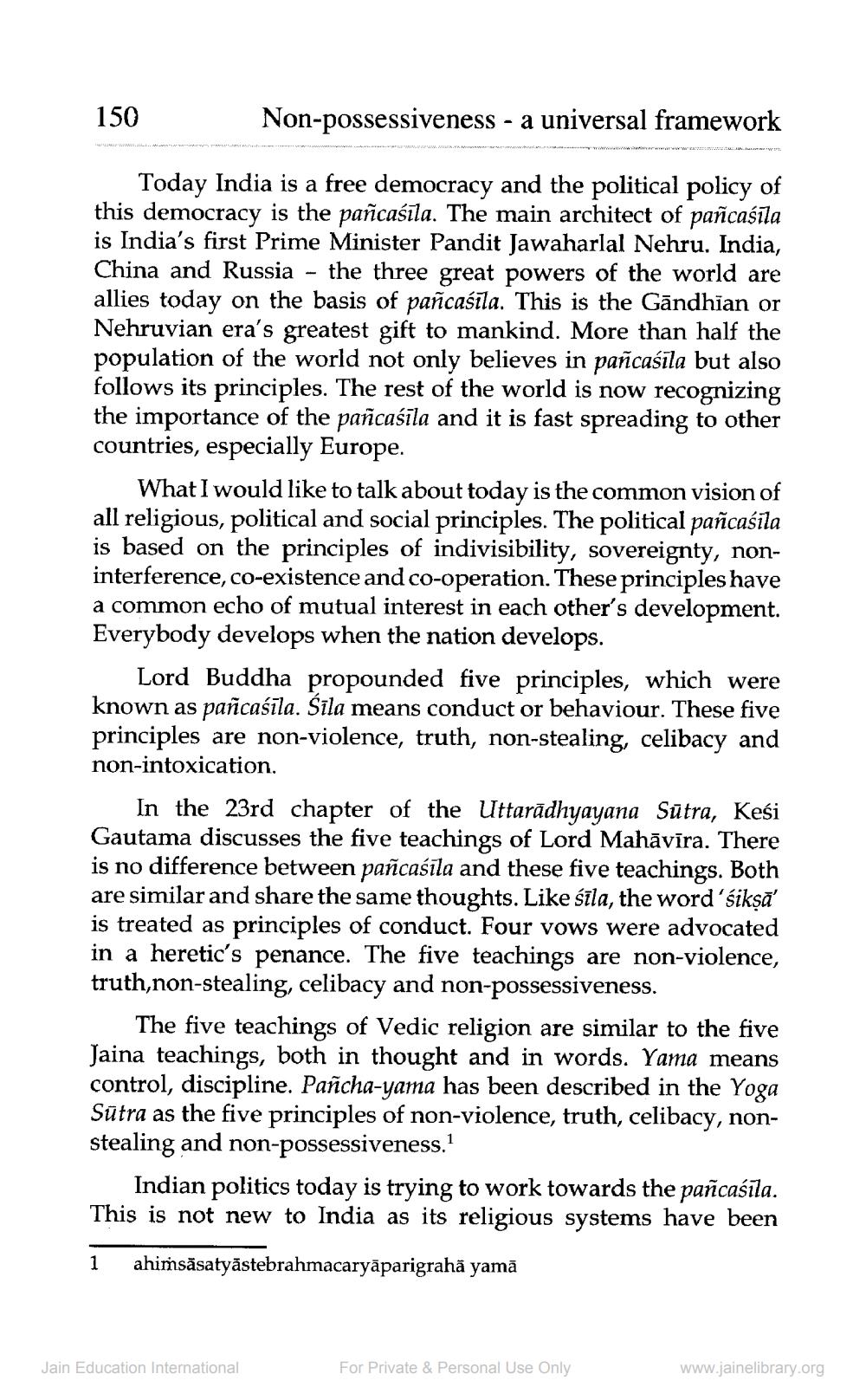________________
150
Non-possessiveness - a universal framework
Today India is a free democracy and the political policy of this democracy is the pañcaśīla. The main architect of pañcasila is India's first Prime Minister Pandit Jawaharlal Nehru. India, China and Russia - the three great powers of the world are allies today on the basis of pañcaśīla. This is the Gāndhian or Nehruvian era's greatest gift to mankind. More than half the population of the world not only believes in pañcaśīla but also follows its principles. The rest of the world is now recognizing the importance of the pañcaśīla and it is fast spreading to other countries, especially Europe
What I would like to talk about today is the common vision of all religious, political and social principles. The political pañcasila is based on the principles of indivisibility, sovereignty, noninterference, co-existence and co-operation. These principles have a common echo of mutual interest in each other's development. Everybody develops when the nation develops.
Lord Buddha propounded five principles, which were known as pañcaśīla. Sīla means conduct or behaviour. These five principles are non-violence, truth, non-stealing, celibacy and non-intoxication.
In the 23rd chapter of the Uttarādhyayana Sutra, Kesi Gautama discusses the five teachings of Lord Mahāvīra. There is no difference between pañcasila and these five teachings. Both are similar and share the same thoughts. Like śīla, the word'śikṣā' is treated as principles of conduct. Four vows were advocated in a heretic's penance. The five teachings are non-violence, truth,non-stealing, celibacy and non-possessiveness.
The five teachings of Vedic religion are similar to the five Jaina teachings, both in thought and in words. Yama means control, discipline. Pañcha-yama has been described in the Yoga Sūtra as the five principles of non-violence, truth, celibacy, nonstealing and non-possessiveness.'
Indian politics today is trying to work towards the pañcaśīla. This is not new to India as its religious systems have been
i
ahimsăsatyāstebrahmacaryāparigraha yamā
Jain Education International
For Private & Personal Use Only
www.jainelibrary.org




